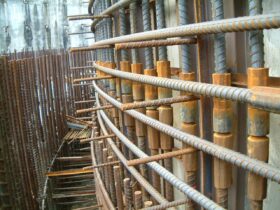Effective waste management is a cornerstone of responsible business operations. Among the various strategies for managing waste, segregation plays a crucial role. Waste segregation, the practice of separating waste into different categories for proper disposal, recycling, or treatment, is not only a legal requirement in many areas but also a vital part of sustainable business practices. For companies involved in environmental services, such as Ibex Septic system design, understanding and implementing waste segregation is essential for maintaining a healthy and compliant work environment.
What is Waste Segregation?
Waste segregation involves categorizing waste based on its type, composition, and disposal requirements. Typically, waste is divided into categories such as organic, recyclable, hazardous, and general waste. By separating waste at the source, businesses can ensure that each type of waste is handled appropriately, reducing environmental impact and improving efficiency.
For example, organic waste like food scraps and garden clippings can be composted, while recyclable materials such as paper, glass, and certain plastics can be sent to recycling facilities. Hazardous waste, including chemicals, batteries, and certain industrial by-products, requires special handling and disposal methods to prevent environmental contamination.
The Importance of Waste Segregation for Businesses
Proper waste segregation is critical for several reasons, ranging from environmental benefits to regulatory compliance and cost savings. Here’s why it matters:
1. Environmental Protection
One of the most significant benefits of waste segregation is its positive impact on the environment. By separating waste into appropriate categories, businesses can ensure that materials are disposed of or recycled in a manner that minimizes harm to the environment. For instance, recyclable materials can be repurposed, reducing the need for new raw materials and conserving natural resources. Organic waste can be composted, reducing methane emissions from landfills.
Ibex Septic system design services understand the importance of protecting the environment. Implementing effective waste segregation practices is part of their commitment to sustainability, ensuring that waste is treated and disposed of in an environmentally friendly manner.
2. Regulatory Compliance
Many regions have strict regulations governing the disposal and treatment of waste. Businesses are required to comply with these regulations to avoid fines and legal issues. Proper waste segregation is often a key component of these regulations, particularly when it comes to hazardous waste. Failing to segregate waste correctly can lead to contamination, environmental damage, and non-compliance with local laws.
Working with a professional service like Ibex Septic system design can help businesses navigate these regulations. By providing expert guidance on waste segregation and disposal, they ensure that businesses remain compliant with all relevant laws, reducing the risk of legal penalties.
3. Cost Savings
Effective waste segregation can lead to significant cost savings for businesses. When waste is properly separated, recyclable materials can be sold or processed for reuse, reducing the cost of waste disposal. Additionally, businesses can avoid the higher disposal fees associated with mixed or contaminated waste.
By reducing the volume of waste that needs to be sent to landfills, businesses can also lower their overall waste management expenses. Ibex Septic system design offers solutions that help businesses optimize their waste segregation processes, leading to more efficient and cost-effective waste management.
4. Improved Health and Safety
Segregating waste correctly is crucial for maintaining a safe and healthy workplace. Hazardous waste, if not properly handled, can pose significant risks to employees, customers, and the surrounding community. By separating hazardous materials from general waste, businesses can reduce the risk of accidents, contamination, and exposure to harmful substances.
For companies like Ibex Septic system design, where environmental health and safety are top priorities, proper waste segregation is a fundamental practice. They help businesses implement waste management systems that prioritize health and safety, ensuring that hazardous waste is managed in accordance with best practices.
5. Enhanced Corporate Reputation
In today’s market, consumers and stakeholders are increasingly concerned about environmental responsibility. Businesses that demonstrate a commitment to sustainable practices, including effective waste segregation, can enhance their corporate reputation and build trust with their customers.
Implementing waste segregation practices not only shows that a business is environmentally conscious but also that it takes its regulatory obligations seriously. Partnering with experts like Ibex Septic system design can further enhance a company’s reputation by ensuring that waste management practices are of the highest standard.
How to Implement Waste Segregation in Your Business
Implementing waste segregation in your business requires careful planning and a commitment to sustainability. Here are some steps to get started:
- Conduct a Waste Audit: Assess the types and volumes of waste your business generates. This will help you identify the necessary categories for segregation.
- Provide Appropriate Bins: Ensure that your workplace has clearly labeled bins for different types of waste. This makes it easier for employees to segregate waste correctly.
- Train Employees: Educate your staff on the importance of waste segregation and how to properly dispose of different types of waste.
- Work with Experts: Partner with a professional service like Ibex Septic system design to develop and implement an effective waste segregation strategy tailored to your business’s needs.
- Monitor and Adjust: Regularly review your waste management practices to ensure they are effective. Make adjustments as needed to improve efficiency and compliance.
Conclusion
Waste segregation is a critical component of responsible business operations, offering numerous benefits including environmental protection, regulatory compliance, cost savings, improved health and safety, and enhanced corporate reputation. By implementing effective waste segregation practices, businesses can contribute to a more sustainable future while optimizing their waste management processes. Ibex Septic system design provides the expertise and solutions needed to help businesses achieve their waste management goals, ensuring that waste is handled responsibly and efficiently.










